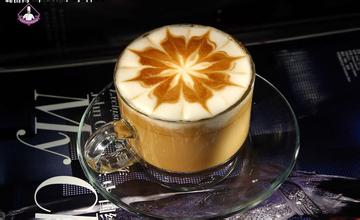Introduction to the quality and taste of Dominica coffee bean flavor description grinding scale treatment
Turning to the introduction of Dominican coffee, the most distinctive features are fresh and elegant, full of particles, excellent acidity and pleasant flavor (two colleagues agree with this). Such flavor characteristics are not only related to varieties and soil quality, but also closely related to the picking and handling of raw beans. Coffee in Dominica is selected by the manual method with the highest cost, and workers mainly consider the fullness of coffee granules and the uniformity of coffee granules. According to these conditions, the coffee beans with the fullest and most uniform grains can represent the best quality in Dominica. The finest coffee. And only choose the washing treatment method to ensure the high quality and stability of coffee beans. The coffee beans treated with water washing method taste cleaner and exude a touch of pure and soft fragrance, which can make people feel a faint fruity aroma and a winding aftertaste. Smooth and smooth Dominican coffee is also slightly different in taste according to the altitude of the planting region, and the taste of the highland is slightly sour, but the taste is rich. The lowland is less sour and tastes smoother. On the other hand, the high-quality coffee beans produced by some Dominican estates have a rich aroma, mellow taste and moderately bright sour taste. Compared with the famous Puerto Rican or Jamaican coffee beans, the earliest coffee in Dominica was introduced from Martinique (France's overseas province), dating back to the early 18th century. Dominica is an island country with a tropical climate, with little change in temperature throughout the year. Except for the lower temperature in the Central Cordillera Mountains, which can reach less than 0 ℃ in winter, the average annual temperature in other areas is between 25 and 30 ℃, while affected by the mountain topography, the north and east face the northeast trade wind with an annual precipitation of 1500-2500 mm, which belongs to tropical maritime climate. The mountain forest is dense, the leeward southwest annual precipitation is 500-1000 mm, the dry season is long, belongs to the savanna climate.
The temperate climate in Dominica is conducive to coffee cultivation, and the best places to grow coffee are the Barahona region in the southwest and the Cibao Valley north of Santiago, Dominica's second largest city. The northern region, represented by Hibao, and the southern region, including Okayabani Santo Domingo, produce good coffee. Among them, Santo Domingo and Barney are famous for their coffee, which is almost synonymous with domiga coffee. The Dominican Republic is a favorite country for tourists. It lives next to Haiti on the island of Hispaniola in the West Indies, Dominica in the west and Haiti in the east. The world's whitest and softest white sand, cool sea breeze from the Atlantic and Caribbean and warm sunshine from the tropics make it a holiday paradise on a par with Maldives and Hawaii. It is the second European colony in the American continent after Greenland. It currently has the oldest Catholic churches, universities, roads and bunkers in America, and its capital, Santo Domingo, is also the oldest city and capital in the Americas.
The Dominican Republic has also experienced a history of unrest and poverty, and now the country has implemented democratic elections and entered a period of stable development, but it has not yet formally established diplomatic relations with China, but has maintained so-called "diplomatic relations" with Taiwan. It seems that this has nothing to do with coffee, but in fact, it still has an impact. The exchanges between the two countries that have not established diplomatic relations are subject to many restrictions in all aspects, of course, it will also affect our coffee trade. Dominican coffee is mainly exported to the United States and a small number of European countries because of its superior quality, which is rarely seen in our Chinese mainland.

Important Notice :
前街咖啡 FrontStreet Coffee has moved to new addredd:
FrontStreet Coffee Address: 315,Donghua East Road,GuangZhou
Tel:020 38364473
- Prev

Introduction of Pure and aromatic Puerto Rican Coffee Flavor description method
Puerto Rico's coffee beans are carefully planted, pure, aromatic and heavy, of which the best coffee is Yauco Selecto, which means Selecto. Yaocote Coffee is grown only on three farms in the southwest of the island, San Pedro, Caracolillo and La Juanita. It is a truly high-quality coffee with a strong flavor and a long aftertaste. Puerto Rico
- Next

Peruvian coffee bean flavor description grinding scale production area taste manor treatment method
Peru is also a big coffee producer. Up to 98% of Peruvian coffee is grown in forest areas, and most producers are small farmers. Coffee is high-quality and balanced and can be used for mixed drinks. Peru has good economic conditions and a stable political situation, thus ensuring the good quality of coffee. In the mid-1970s, Peru produced about 900000 bags of coffee a year, and then continued.
Related
- Detailed explanation of Jadeite planting Land in Panamanian Jadeite Manor introduction to the grading system of Jadeite competitive bidding, Red bid, Green bid and Rose Summer
- Story of Coffee planting in Brenka region of Costa Rica Stonehenge Manor anaerobic heavy honey treatment of flavor mouth
- What's on the barrel of Blue Mountain Coffee beans?
- Can American coffee also pull flowers? How to use hot American style to pull out a good-looking pattern?
- Can you make a cold extract with coffee beans? What is the right proportion for cold-extracted coffee formula?
- Indonesian PWN Gold Mandrine Coffee Origin Features Flavor How to Chong? Mandolin coffee is American.
- A brief introduction to the flavor characteristics of Brazilian yellow bourbon coffee beans
- What is the effect of different water quality on the flavor of cold-extracted coffee? What kind of water is best for brewing coffee?
- Why do you think of Rose Summer whenever you mention Panamanian coffee?
- Introduction to the characteristics of authentic blue mountain coffee bean producing areas? What is the CIB Coffee Authority in Jamaica?

